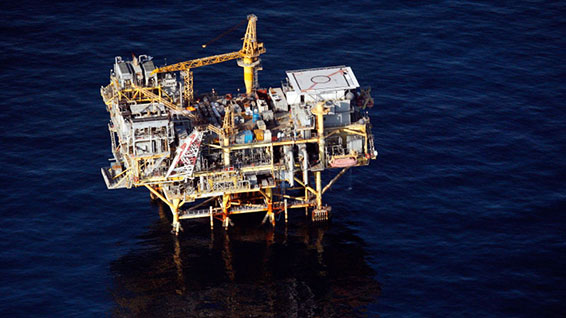Maintaining flow in oil wells

Avoiding blockages caused by mineral scale deposits is a major priority for oil producers. Yet combating scale build-up to stop it jeopardising well productivity is complex and costly. Heriot-Watt research has saved the industry hundreds of millions of pounds with computer software - SQUEEZE - that enables companies to plan the best scale-inhibiting treatment from project outset.
Mineral scale problems arise when water is produced along with oil and gas in high-pressure, high-temperature fields, but also where low temperatures prevail. To treat the deposits formed under such extreme conditions - ‘downhole’ in the well or ‘topside’ on the surface facilities - a firm understanding of the chemical processes behind scale formation is needed.
All the scale management activity in the North Sea that our company undertakes is impacted by the research that has been undertaken by FAST over the past decade
Heriot-Watt researchers in the Edinburgh Research Partnership for Engineering-based Flow Assurance and Scale Team (FAST) have developed techniques to predict and prevent scale formation across different operating environments. To do this the FAST team developed specialised laboratory equipment, field-condition experiments and software. Many industrial partners provided their data: for example, the researchers have conducted reservoir simulation studies on 40 offshore fields for 16 oil and gas companies to predict the scaling risk. The resulting FAST software can successfully model scale deposition from micro (single pore space) to macro (oil-field) levels.
FAST’s SQUEEZE software distils the expertise gained from many years’ work upscaling laboratory measurements to field conditions. SQUEEZE has become the industry standard for planning scale-inhibiting treatment (‘squeezes’). All companies that provide scale services to the North Sea oil industry are now required to demonstrate competence in SQUEEZE software within tender processes, and this is becoming increasingly the case worldwide. For Shell in one field alone, use of SQUEEZE has saved £3m per well per year by increasing the interval between treatments from six months to one year.
Given the risk of losing a well altogether, and the enormous cost of shutting a well down to treat a blockage, SQUEEZE has proved that prevention is considerably better than cure.
Key information
Eric Mackay
- Professor
- e.j.mackay@hw.ac.uk